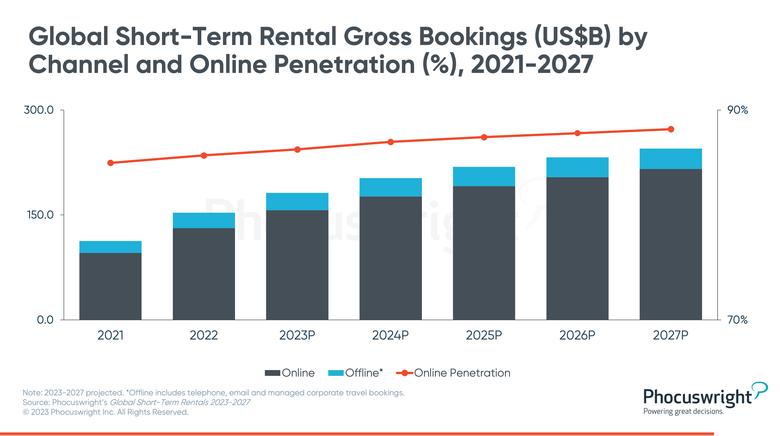After two plus years of
remarkable expansion fueled by booming pandemic-era demand during which time
travelers experienced the category’s strengths and flaws, growth of global
short-term rental bookings is slowing as significant volume shifts back to hotels.
According to Phocuswright’s latest travel research report on the segment Global Short-Term Rentals
2023-2027, the slowdown can be attributed to the following:
- Rebounding demand for
hotels, which were hit harder during the pandemic - The recovery of
business travel, which tends to be hotel-centric - A return to offices,
resulting in fewer people working while traveling – a trend which was conducive
to STR stays - Increasing regulations
on STRs in many key markets
Phocuswright’s U.S. Consumer Travel Report
2023 highlighted the shift back to hotels: The incidence of
hotel stays in the United States was at parity with 2019 in 2022 (67% vs. 66%) after a dip in
the intervening years, while for U.S. STRs it remained lower than 2019 (25% vs.
28%).
Europe was a slightly
different story. Per the Europe Consumer Travel Report
2023, the United Kingdom tracked similarly to the U.S. in that STRs didn’t
bounce back as strongly. But across France, Germany, Italy and Spain, STR
incidence was significantly higher in 2022 vs. 2019, spotlighting the
inconsistent dynamics of the hotel vs. STR markets in various locales.
Learn more!
Phocuswright’s Global Short-Term Rentals 2023-2027 gives readers market sizing and projections for the global STR market by region and distribution channel, including an analysis of online penetration, regional distribution shifts and a discussion of upcoming challenges.

